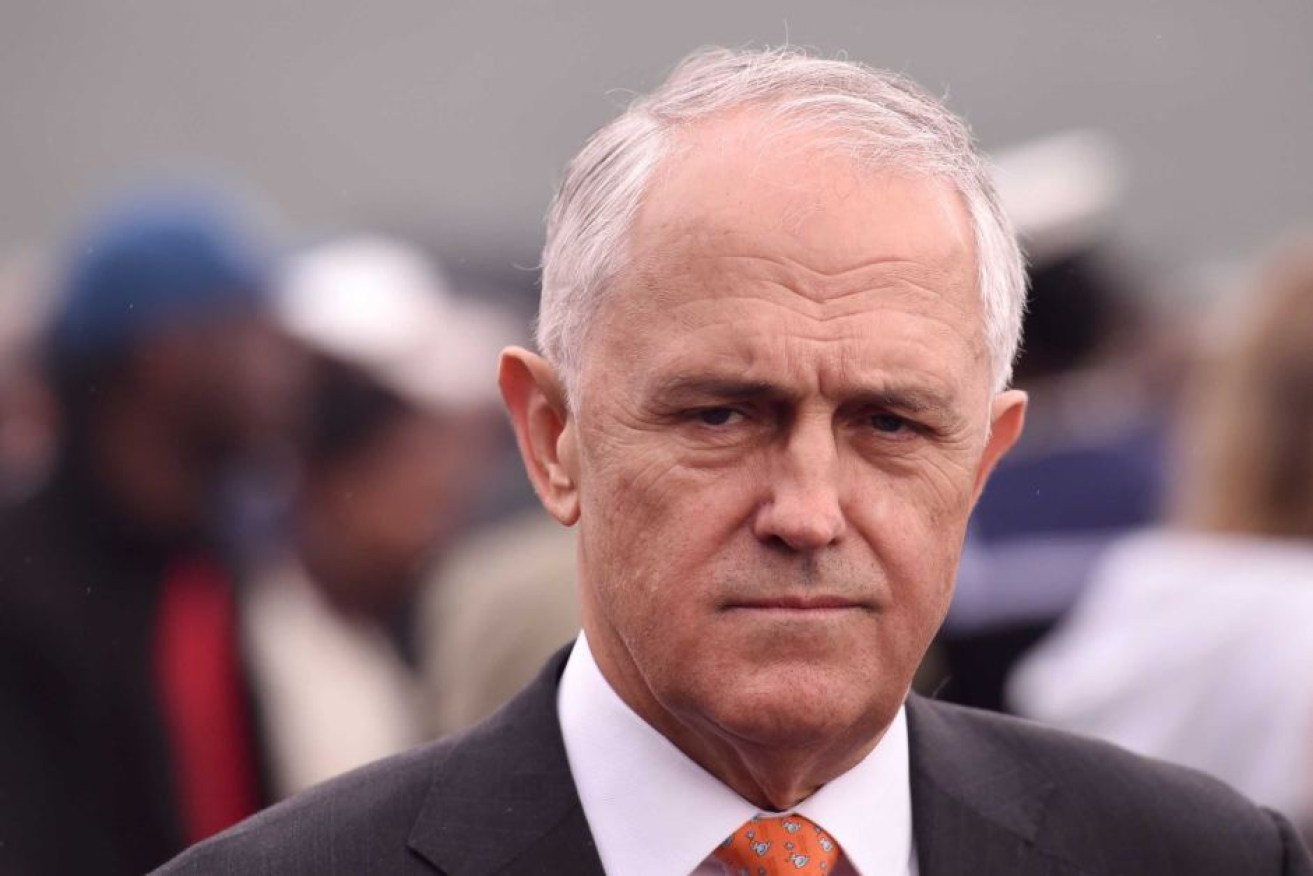Are you one of the lucky ones in Turnbull’s two-speed society?


Malcolm Turnbull's second-rate NBN is leaving most of Australia with second-rate technology. Photo: AAP
If Australia was a corporation, we, its shareholders, would be justified in terminating CEO Malcolm Turnbull’s employment contract forthwith.
On the National Broadband Network Mr Turnbull has led us up the sub-optimal garden path.
It is proving to be increasingly costly as recent decisions to underwrite an extra $19.5billion in government borrowings to complete Mr Turnbull’s MTM (copper dependant multi-technology mix) rollout have indicated.
To counter internet corporation TPG’s aggressive fibre rollout to create its own discreet market of city apartment buildings, the government, by legislation, is proposing a $7.30 a month ‘levy’ to discourage this wholesale competitor.
The government is arguing a level playing field is needed because NBN expensively has to service regional users.
As the rest of the world moves to gigabit per second internet capability, for the foreseeable future Australia will be left to wallow in poorer performance. Pretty soon the median internet speeds of 25 to 50 Mb/s or even up to 100 Mb/s promised with a fully-rolled out MTM will be old hat.
Post mining boom there has been an urgent need to create the ‘new Australian jobs and industries’ of the 21st century. Just what sort of new jobs and industries are possible for a country with 24 million people stuck down here near the South Pole, nobody knows for sure.
We need a world-leading national broadband network, to enable Australians, wherever they live on this vast continent, to educate themselves to the highest standards and to engage the digital revolution to compete in China, India, South Korea, Japan, Indonesia and the other emerging south-east Asian economies.
High-speed broadband with massive capacity data download/upload could transform regional Australia through business re-location, as congestion and extortionate property prices are making starting up and doing business from Australian capital cities prohibitive.
The ‘lucky’ list in technologically divided Australia
At June 30 2016 1.4 million premises of a total of 11.9 million have access to high-speed fibre to the premises (FTTP).
FTTP is available in selected areas of 91 metropolitan suburbs and regional centres.
Mouse over the map for the full list of suburbs and regional centres with FTTP access.
It appears that Nationals leader Barnaby Joyce and his predecessor, Warren Truss, both have been led up that garden path by Mr Turnbull.
If ever the Nationals had a case for using their party’s powerful leverage through post-election Coalition agreement negotiations with the Liberals, a fully fibre NBN should have been item one.
Instead, as former independent MP Tony Windsor has indicated, the Nationals betrayed rural and regional Australia on this nation-building infrastructure.
All this would be mere debate if the node/copper technology was easily upgradable to FTTP. Tragically it is not, without significant additional capital expenditure.
Unless they are greenfield housing and commercial/industrial developments, all remaining ‘brownfield’ rollout looks like being in the slower node/copper or old pay TV cable technology.
Mr Turnbull’s ‘colossal mistake’
In the July 2 federal election campaign Mr Turnbull promised Australians a first-world “new economy” through “innovation”. But the prime ministerial rhetoric never went beyond this aspirational flourish.
You would think he would then immediately point to his national broadband policy as substantive evidence that he intended to set Australia up for a clever world-beating future.

Former NBN CEO Mike Quigley was scathing in his indictment. Photo: AAP
He always omitted this, preferring instead to bag the Rudd/Gillard (fibre) NBN for its admittedly slow rollout which was something his MTM model was now fixing.
Embarrassingly, the rollout will not reach Mr Turnbull’s 2016 commitment by this year’s end, but it is fair to say it is progressing apace. The bigger question is the limits to MTM’s capacity as the best broadband infrastructure for Australia’s future.
Significantly in his detailed industry presentation in June, former NBN CEO Mike Quigley defended himself against the claims of incompetence to which he was subjected by Mr Turnbull and the then Abbott Government.
“It is not surprising that people would have been convinced that a change to an MTM based NBN would save a lot of time and money,” he said. “But as we now know, those original MTM estimates were a fiction.
“Within only a few months the estimated MTM costs had increased dramatically and the 25Mb/s to every premise in Australia by the end of 2016 was abandoned.
If I am right on the FTTP peak funding costs, and I intend to demonstrate that I am, then the move to the MTM has been a colossal mistake … one that will burden Australia with a much poorer and more expensive fixed broadband network than it could have had if it had continued with the FTTP based NBN.
Former NBN CEO Mike Quigley
There had been rapid improvements in FTTP technology with lower diameter or ‘skinny fibre’, new joint enclosures, new splitter technology and improved connection methods reducing both cost and construction times.
In a big counter-punch Mr Quigley has in effect delivered this indictment of Mr Turnbull: “But what is clear is that every forecast regarding the NBN that the Coalition has made, for which there is now data, whether for their own MTM or for the original FTTP plan – every one of them has been wrong.”
Mr Quigley quoted the American AT&T’s submission to the US Federal Communications Commission declaring the future was FTTP. That was why in the US and Asia the debate was now about Gigabit per second speeds, not whether 25 or 50 Mb/s was merely “sufficient.”
“It seems especially curious that a Government that styles itself as the ‘innovation and infrastructure government’ should argue this.”
Mr Turnbull has yet to deliver a detailed response to the Quigley indictment.








